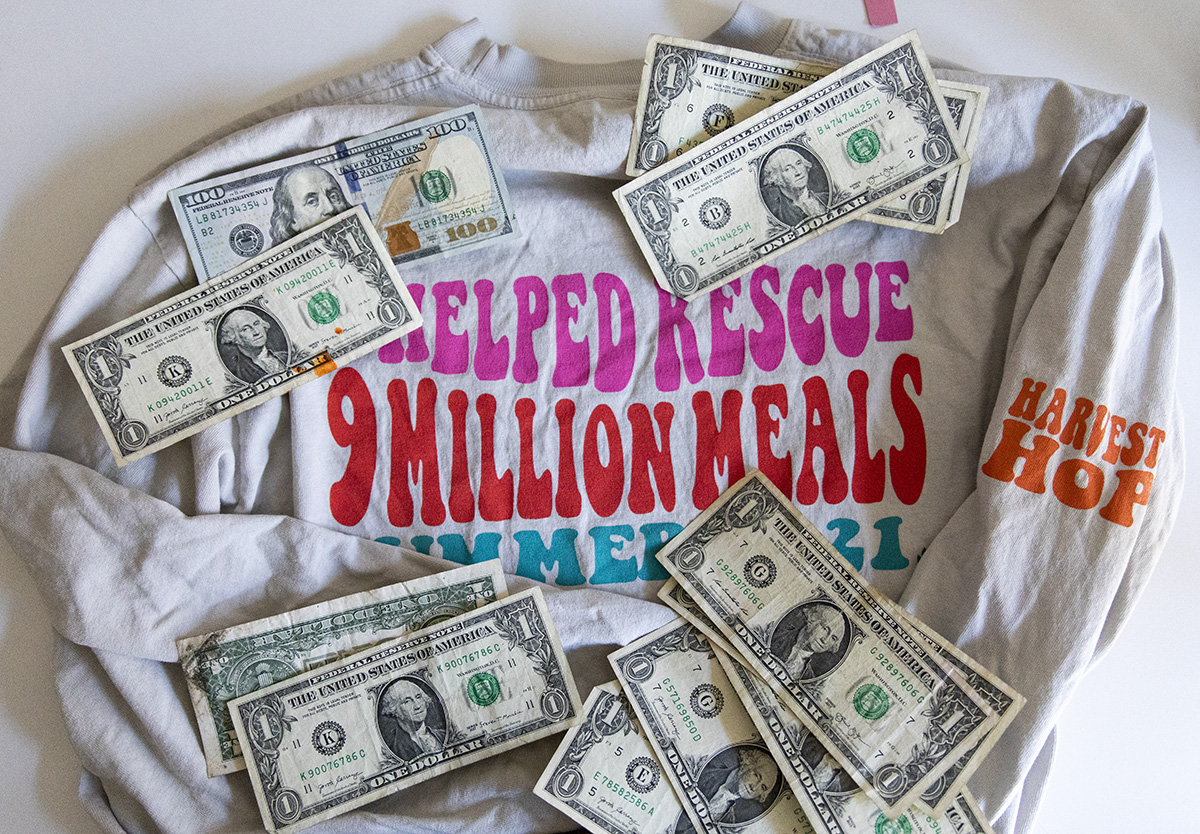Gov. Newsom introduces new community service-based scholarship for students

Starting in spring quarter, students can apply for a new state program that would allow them to receive scholarships in return for community service. (Ashley Kenney/Photo editor)
By Lindsay Turpin
Feb. 7, 2022 1:49 a.m.
Students are concerned about the limited spots and effectiveness of a state program in which scholarships are awarded to students who complete a certain amount of community service hours.
Gov. Gavin Newsom announced the Californians for All College Corps program Jan. 18 as an effort to support students with college debt and communities throughout California. A total of 45 universities are participating in the program, including several University of California and California State University schools.
Students who participate in the program will receive a $10,000 scholarship for completing 450 hours of community service in a year, said Amanda Finzi-Smith, interim program director for the Black Bruin Resource Center at UCLA, in an emailed statement. They will be given $7,000 over the course of the year for living expenses and $3,000 at the end of the program, Finzi-Smith added.
The program was created by Newsom, Chief Service Officer Josh Fryday, and California Volunteers, a state office aiming to increase community service. Newsom hopes to eventually expand it outside of California, said Julie Goggins, the communications manager for California Volunteers, in an emailed statement.
Applications will open up in the spring, and the program will begin in fall, Goggins said.
Finzi-Smith said UCLA has not yet decided the exact timing or requirements for applications to the college corps program.
UCLA will be able to accept 150 students into the program, Finzi-Smith said. She added that 60 to 75 fellowships will go to Deferred Action for Childhood Arrivals students, and the rest will go to Pell Grant-eligible students.
Smith said she, Vice Chancellor for Student Affairs Monroe Gorden Jr. and Student Affairs grant writer Valeria Shepard applied for a grant to bring the program to UCLA. Gorden was the principal investigator, Shepard wrote the grant and Smith led the proposal team, Finzi-Smith said.
Goggins said the program will have a four-pronged positive impact on students, schools, communities and society. Students will benefit from scholarship money and volunteer experience, while schools will be able to serve their communities and help students graduate on time, she added. Additionally, communities will be improved as service increases and society will gain new civic-minded leaders, she said.
Leaders of the program chose to prioritize community service work for issues that are most urgent in California, Goggins said.
Corps fellows will work within the fields of K-12 education, climate action and food insecurity, she said.
She added that Californians for All aims to incentivize student volunteering, make it easier for students from a variety of backgrounds to afford college and graduate on time, as well as support community service organizations all over California.
Students were happy to see an emphasis on volunteering and service in California but expressed concerns about the effectiveness compared to other programs for college affordability.
Simi Rehill, a third-year communication transfer student, said she plans to apply to the program because she enjoys volunteering and the opportunity to give back to the community.
“I’m really excited about (the program) because I think that it accomplishes a goal that’s beneficial not only to students but also their communities by making education more accessible and affordable,” Rehill said.
Rehill added that as a transfer student, she has seen California try to make community college more affordable, and it is important the state extends its effort for more financial aid to four-year universities.
However, the program may face an issue with competitive selections since UCLA is a large school, Rehill added. She said she hopes they can extend the fellowship to a larger number of people because, otherwise, it may only have a small-scale effect at UCLA.
Rehill also said 450 hours of community service might be a lot for students to handle, especially for those on the quarter system schedule. However, she said the money for tuition could incentivize students to prioritize volunteer work.
Jiseon Kim, a fourth-year history transfer student, said she appreciates that the program is tailored to low-income students, especially those enrolled in DACA.
“A lot of the students who are eligible for this program would be impacted by the issues that they will be serving,” Kim said. “It’s a powerful program to both help students afford college by providing a living allowance stipend but also (give) back to communities.”
However, Kim said she is concerned the living allowance could decrease other financial aid opportunities for students because they would need to record the income when reapplying for financial aid the next year.
Jose Fernandez, a third-year political science transfer student, said the $146 million invested in the Californians for All program would be better spent expanding the Cal Grant to support more students.
Volunteering is a great way to discover passions and help communities, but attending college should not be contingent on completing community service, Fernandez added.
Fernandez said the California state government should instead focus more on encouraging the federal government to provide free college tuition for students with family incomes that are less than $125,000.
“Rather than passing something like this, … the state government should lobby the federal government and the Biden administration to do what it campaigned to do,” Fernandez said.
However, Newsom hopes the program can serve as a leading example for other states to improve college affordability and empower students, Goggins said.
Goggins added that Californians for All is the largest state investment in a college community service program in the history of California.
“Governor Newsom hopes to not only expand the program to additional communities in California, but also hopes the program will be replicated across the nation,” Goggins said.


